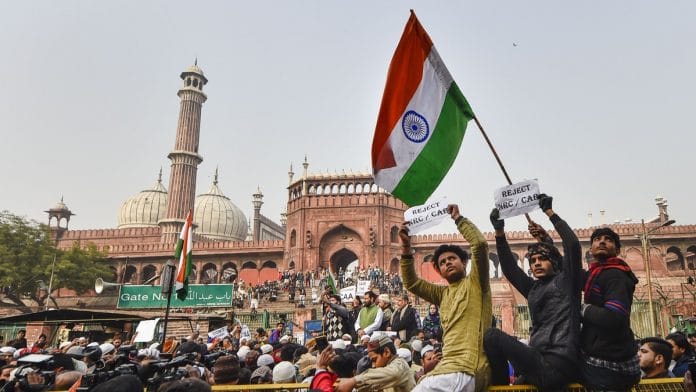New Delhi: India had reached out to several key countries and their diplomatic missions almost 10 days before the contentious Citizenship Amendment Act was passed, reportedly anticipating a backlash on the issue.
“Almost all countries were being informed about the Citizenship (Amendment) Act 10 days in advance,” an official source told ThePrint.
The official, who did not want to be named, said India had prepared a document in a question-answer format, and shared it with the various missions based in the country, as well as through Indian missions located across the world. This was done to pre-empt any question that could have been asked about the move, especially by the foreign media.
The exercise was conducted as part of a “consolidated effort” days before the Citizenship (Amendment) Bill was passed in the Rajya Sabha on 11 December, said another official, who too asked not to be named.
On Thursday, Ministry of External Affairs Spokesperson Raveesh Kumar said the government did “reach out to countries across all geographical regions” on the Citizenship Act as well as the National Register of Citizens.
“We did write to our missions and posts. We did tell them to share our perspectives on the CAA and NRC to the host government,” Kumar added.
Roman Babushkin, deputy chief of mission, Russian Embassy, had said last week the Narendra Modi government should look at de-escalating the tension around the implementation of the Act and issues should be resolved by dialogue.
“We are not interfering, this is a domestic matter. But if there are issues, it should be resolved by dialogue and the situation should be de-escalated,” he said.
Also read: Why Supreme Court of India won’t strike down Modi govt’s Citizenship Amendment Act
India had briefed US Congress
India has been witnessing massive protests across the country over the new citizenship law. There have also been instances of protests by Indians living abroad, mostly students.
On 22 January, the Supreme Court will begin hearing various petitions on the Citizenship Amendment Act, which seeks to grant citizenship to Hindus, Sikhs, Jains, Buddhists, Christians and Parsis who have faced religious persecution in Pakistan, Bangladesh and Afghanistan, provided they have entered India before 31 December 2014.
India had also briefed the US Congress separately before the bill was even passed in the Lok Sabha.
Meanwhile, Bangladesh has now sought a “written” assurance from India that it will not send Muslim immigrants across the border in the wake of the new law.
Also read: Foolish to think Hindus who voted Modi twice will shift due to threat to Muslim citizenship






